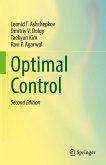This book is based on lectures from a one-year course at the Far Eastern Federal University (Vladivostok, Russia) as well as on workshops on optimal control offered to students at various mathematical departments at the university level. The main themes of the theory of linear and nonlinear systems are considered, including the basic problem of establishing the necessary and sufficient conditions of optimal processes.
In the first part of the course, the theory of linear control systems is constructed on the basis of the separation theorem and the concept of a reachability set. The authors prove the closure of a reachability set in the class of piecewise continuous controls, and the problems of controllability, observability, identification, performance and terminal control are also considered. The second part of the course is devoted to nonlinear control systems. Using the method of variations and the Lagrange multipliers rule of nonlinear problems, the authors prove the Pontryagin maximum principle for problems with mobile ends of trajectories. Further exercises and a large number of additional tasks are provided for use as practical training in order for the reader to consolidate the theoretical material.
Dieser Download kann aus rechtlichen Gründen nur mit Rechnungsadresse in A, B, BG, CY, CZ, D, DK, EW, E, FIN, F, GR, HR, H, IRL, I, LT, L, LR, M, NL, PL, P, R, S, SLO, SK ausgeliefert werden.
Es gelten unsere Allgemeinen Geschäftsbedingungen: www.buecher.de/agb
Impressum
www.buecher.de ist ein Shop der
buecher.de GmbH & Co. KG
Bürgermeister-Wegele-Str. 12,
86167 Augsburg
Amtsgericht Augsburg HRA 13309
Persönlich haftender Gesellschafter: buecher.de Verwaltungs GmbH
Amtsgericht Augsburg HRB 16890
Vertretungsberechtigte:
Günter Hilger, Geschäftsführer
Christian Sailer, Geschäftsführer
Sitz der Gesellschaft:Augsburg
Ust-IdNr. DE 204210010



